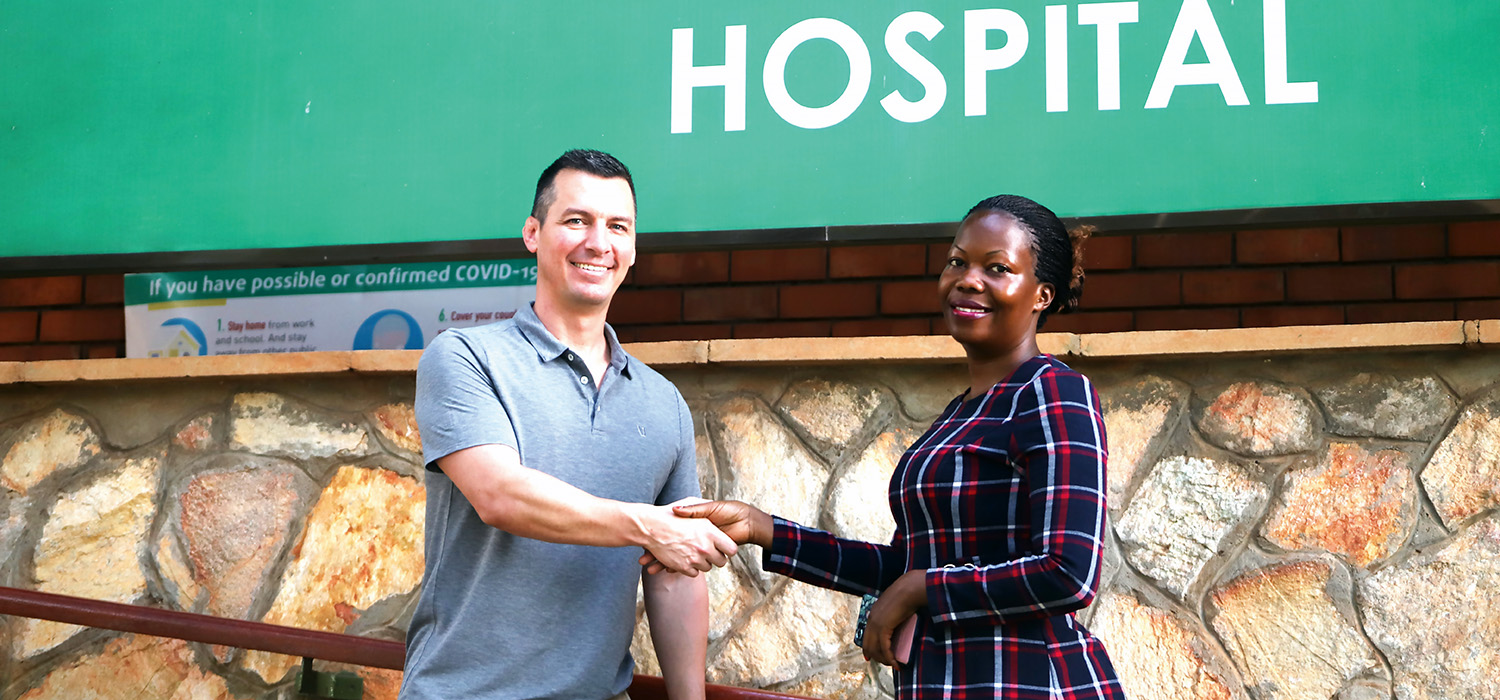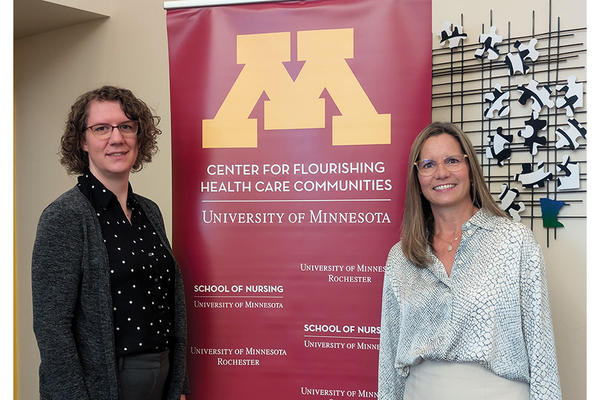Study analyzes if exercise reduces inflammation, depression in people with HIV
Associate Professor Ryan Mays traveled to Uganda to begin study with train-the-trainer model
November 11, 2024
Brett Stursa

Associate Professor Ryan Mays and Eve Namitala, director of Bioethics at Mildmay Hospital in Kampala, Uganda.
Researchers from the University of Minnesota are partnering with health professionals from Mildmay Hospital in Uganda to determine if exercise reduces inflammation and depression in people with HIV.
School of Nursing Associate Professor Ryan Mays, PhD, MPH, FAHA, FSVM, traveled to Kampala, Uganda to begin the initial steps for the study Supervised Treadmill intervention to Reduce Inflammation and Depression through Exercise in HIV: The STRIDE Pilot Study.
“Depression in people who have HIV is three to four times more frequent than among the general public. The disease causes chronic inflammation that is potentially a driver of depression,” says Mays, who is a co-principal investigator on the study. “Exercise is a non-pharmacologic therapy known to decrease both inflammation and depression over time. Gaining a better understanding of the pathophysiology of inflammatory depression and how it is modulated by anti-inflammatory interventions would help target that sub-type of depression.”
The research, funded by a University of Minnesota Grant-in-Aid of Research, is partnership with School of Medicine Assistant Professor Sarah Lofgren, MD, whose research interests include understanding the pathogenesis of depression in HIV-infected persons and evaluating HIV treatment and inflammation outcomes in resource-limited settings of sub-Saharan Africa.
“One way we can reduce chronic depression and inflammation in patients is through exercise. Given my background as an exercise physiologist and my interests in developing novel approaches to improve adoption and adherence to exercise therapy, it led to a unique collaboration,” says Mays. “Formal exercise may be an effective and feasible intervention that could be used in settings where there is a dearth of available treatment modalities available. The Mildmay Physiotherapy Clinic was in need of a working treadmill, which we were able to provide. This is critically important for Ugandan physiotherapists to continue providing exercise in a supervised setting to improve not only our primary outcomes, but also the overall cardiovascular health and quality of life of patients with HIV after the study concludes.”
Mays developed the exercise testing procedures and identified key outcomes for assessment. He also designed the 8-week supervised treadmill program for patients with HIV who are assigned to the intervention group.
“We used a train-the-trainer model where I worked with physiotherapy staff during my trip to Uganda. We implemented data-driven procedures and protocols for collecting outcomes and conducting a successful intervention,” says Mays.
Following the conclusion of the STRIDE Study, researchers intend to conduct a larger exercise trial with Ugandan patients with HIV.


